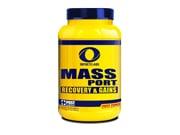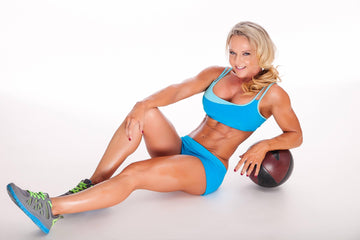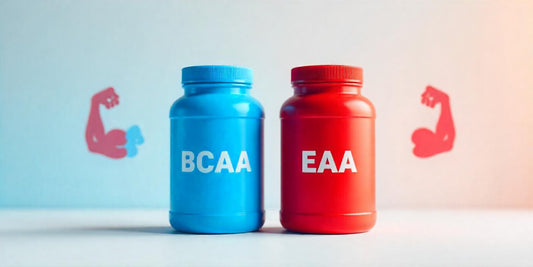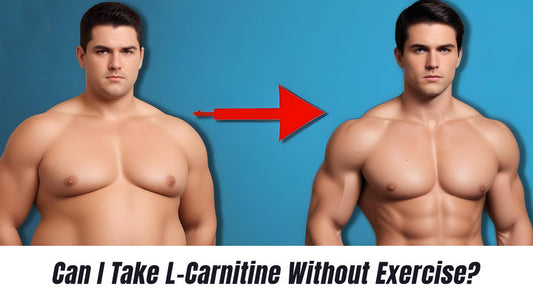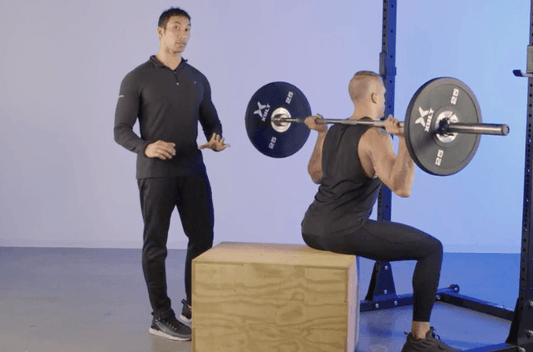

More Muscle with Caffeine
Table of Contents
| More Muscle with Caffeine |
Caffeine may be the most widely used stimulant in the world. It is found in a variety of plants, dietary sources (including coffee, tea, chocolate, cocoa, and colas). Just about every pre-workout on the market contains caffeine, for good reason, it works.
Perhaps one of the biggest myths surrounding caffeine is that caffeine is a diuretic. Contrary to the popular belief that caffeine will cause dehydration, there is no evidence that consuming caffeine-containing beverages as part of a normal lifestyle leads to fluid loss in excess of the volume ingested or is associated with poor hydration status.
Caffeine seems to work especially well for increasing performance in the gym. For example, 13 resistance-trained men ingested a caffeinated (179 mg) energy drink or placebo solution 60 minutes before completing a bout of the following exercises: bench press, deadlift, prone row, and back squat exercise to failure at an intensity of 60% 1-repetition maximum. Subjects who consumed the caffeinated beverage performed more repetitions to failure in all exercises. Another study had 15 women consume caffeine (6 mg/kg) or placebo (PL) seven days apart. Sixty min following supplementation, participants performed a one-repetition maximum (1RM) barbell bench press test and repetitions to failure at 60% of 1RM. They discovered that 1-RM strength was greater during the caffeine condition in these resistance-trained women. The benefits of caffeine don’t just stop with performance in the gym, as caffeine also has been found to have subtle effects on raising testosterone as well.
| Caffeine Increases Testosterone |

The average caffeine consumption in the USA is approximately 2 cups of coffee per day (200 mg); 10% of the population ingests more than 1000 mg per day. Most athletes who consume coffee think that caffeine is the only active ingredient in coffee, but in addition to caffeine, coffee also contains hundreds of other components, including chlorogenic acid, quinides, lignans, and trigonelline, which significantly improve insulin sensitivity or glucose levels.
In cross-sectional studies, coffee consumption has been associated with higher adiponectin concentrations (i.e., increased insulin sensitivity), lower concentrations of inflammatory markers, and lower levels of markers of liver damage. A previous study in the Nutrition Journal found that men who consumed caffeinated coffee have more testosterone. In the study, subjects were assigned to caffeinated and decaffeinated groups. Participants consumed five 2g portions of instant coffee per day (caffeinated or decaffeinated Nestlé’s Taster’s Choice), which was mixed with approximately six ounces of boiling water and consumed with every meal as well as mid-morning and mid-afternoon. After four weeks, results showed that only the caffeinated group experienced significant increases in total testosterone and decreases in both total and free estradiol. The researchers suggest that caffeine may act as an aromatase inhibitor that causes increased testosterone production.
It seems that taking straight caffeine may be a better alternative to increasing testosterone than drinking coffee.

To investigate the acute effect of caffeine on the exercise-associated increases in testosterone and cortisol in a double-blind crossover study, twenty-four professional rugby-league players ingested caffeine doses of 0, 200, 400, and 800 mg in random order 1 hr before a resistance-exercise session. Saliva was sampled at the time of caffeine ingestion, at 15-min intervals throughout each session, and 15 and 30 min after the session. Data were log-transformed to estimate percent effects with mixed modeling, and effects were standardized to assess magnitudes. Testosterone concentration showed a small increase of 15% during exercise. Caffeine raised this concentration in a dose-dependent manner by a further small 21% at the highest dose. Although the highest dose increased testosterone, the 800-mg dose also produced a moderate 52% increase in cortisol. The effect of caffeine on the testosterone:cortisol ratio was a small decline. Caffeine has some potential to benefit training outcomes via the anabolic effects of the increase in testosterone concentration, but this benefit might be counteracted by the opposing catabolic effects of the increase in cortisol and resultant decline in the testosterone:cortisol ratio.
In sum, probably using a moderate dose of caffeine between 200-400 mg is ideal as increasing the dose of caffeine also causes increases in cortisol as well. Another study investigated the effects of caffeine and testosterone after all out sprints on a cycle ergometer. 9 male cyclists completed four high intensity sessions which comprised 4 sets of 30 second sprints, with 5 sprints in each set of 4 (20 total sprints). They were provided either caffeine or placebo via the use of chewing gum which either contained caffeine or inactive compounds following their second set of each session. Testosterone and cortisol samples were collected via the use of saliva testing both at rest and after each set of sprints. Power output declined by 5.8% in the placebo trial between the first ten sprints and the second ten sprints. By contrast, those who were provided a caffeinated gum after the second set experienced a drop of only 0.4% during the last ten sprints. The researchers measured this as a 5.4% reduction in fatigue in the caffeine group compared to placebo. Testosterone levels increased rapidly from baseline (by approximately 53%) and prior to treatments in all trials. Those who then received caffeine had a further 12-14% increase relative to placebo. Cortisol concentrations did not elevate above baseline until after the third set but even then cortisol in the caffeine group was 21% lower than the placebo group. This study concluded caffeine attenuated fatigue in repeated sprints and also increased testosterone and reduced fatigue relative to placebo. Like all things, don’t overdo the caffeine as based on the studies, it seems that too much caffeine can raise cortisol while doses between 200-400 mg seems to enhance testosterone.
Duncan MJ, Smith M, Cook K, James RS. The acute effect of a caffeine-containing energy drink on mood state, readiness to invest effort, and resistance exercise to failure. Journal of strength and conditioning research / National Strength & Conditioning Association 2012;26:2858-65.
Goldstein E, Jacobs PL, Whitehurst M, Penhollow T, Antonio J. Caffeine enhances upper body strength in resistance-trained women. Journal of the International Society of Sports Nutrition 2010;7:18.
Ryan EJ, Kim CH, Fickes EJ, et al. Caffeine Gum and Cycling Performance: A Timing Study. Journal of strength and conditioning research / National Strength & Conditioning Association 2012.
Hoffman JR, Kang J, Ratamess NA, Hoffman MW, Tranchina CP, Faigenbaum AD. Examination of a pre-exercise, high energy supplement on exercise performance. Journal of the International Society of Sports Nutrition 2009;6:2.
Wedick NM, Mantzoros CS, Ding EL, et al. The effects of caffeinated and decaffeinated coffee on sex hormone-binding globulin and endogenous sex hormone levels: a randomized controlled trial. Nutrition journal 2012;11:86.
Maughan RJ, Griffin J. Caffeine ingestion and fluid balance: a review. Journal of human nutrition and dietetics : the official journal of the British Dietetic Association 2003;16:411-20.
Zhang Y, Coca A, Casa DJ, Antonio J, Green JM, Bishop PA. Caffeine and diuresis during rest and exercise: A meta-analysis. Journal of science and medicine in sport / Sports Medicine Australia 2014.
Astorino TA, Cottrell T, Lozano AT, Aburto-Pratt K, Duhon J. Increases in cycling performance in response to caffeine ingestion are repeatable. Nutr Res 2012;32:78-84.
Beaven CM, Hopkins WG, Hansen KT, Wood MR, Cronin JB, Lowe TE. Dose effect of caffeine on testosterone and cortisol responses to resistance exercise. Int J Sport Nutr Exerc Metab. 2008 Apr;18(2):131-41.
MUSCLE MEDIA MAGAZINE FOR WOMEN
The premier source of training, nutrition, supplements, fat loss and health for women.


